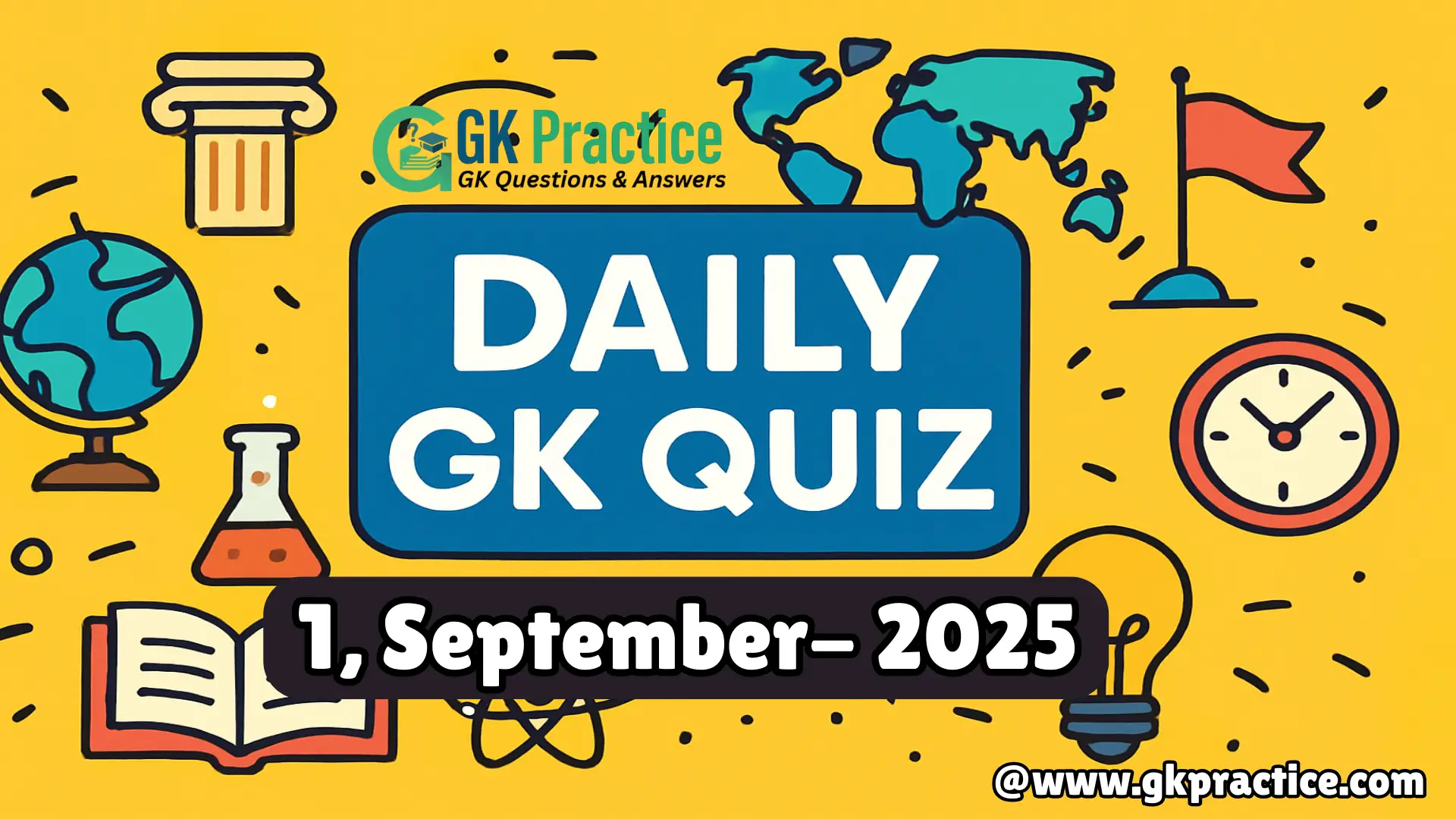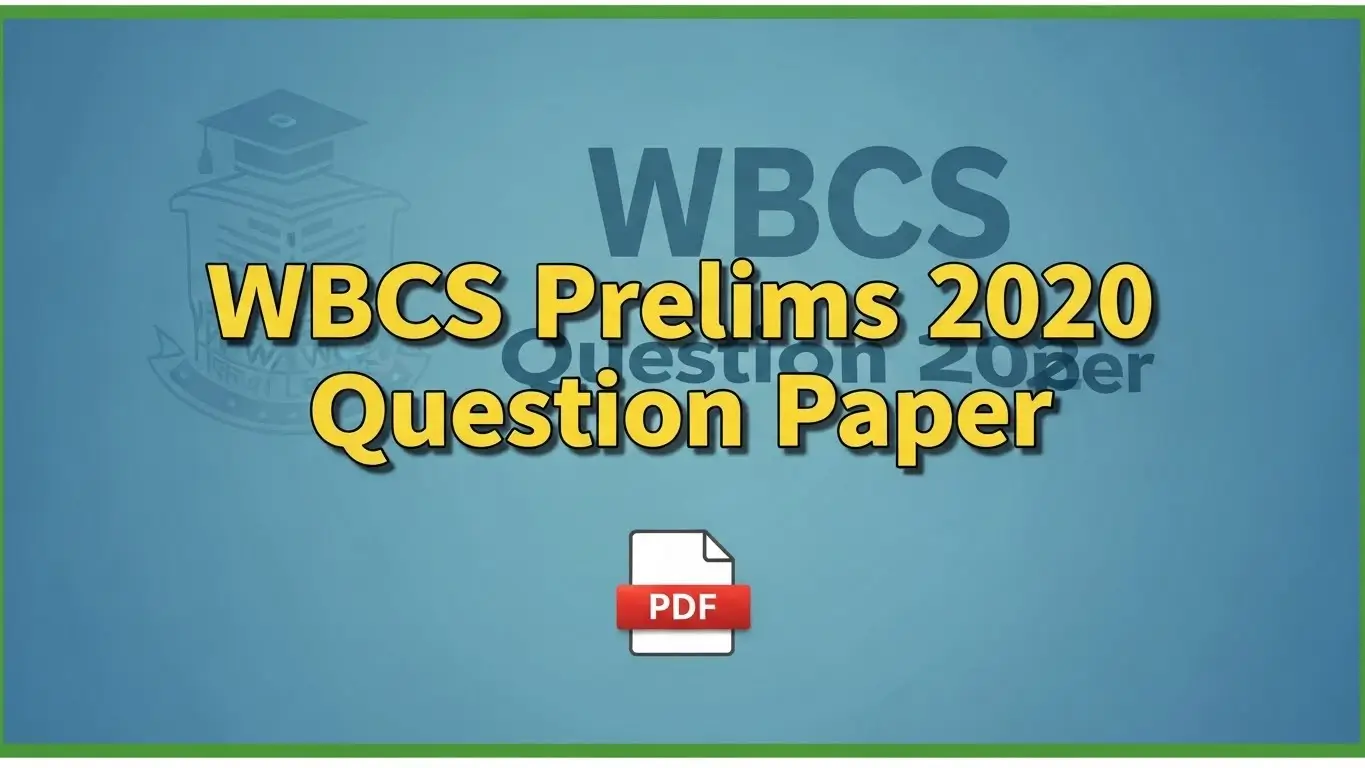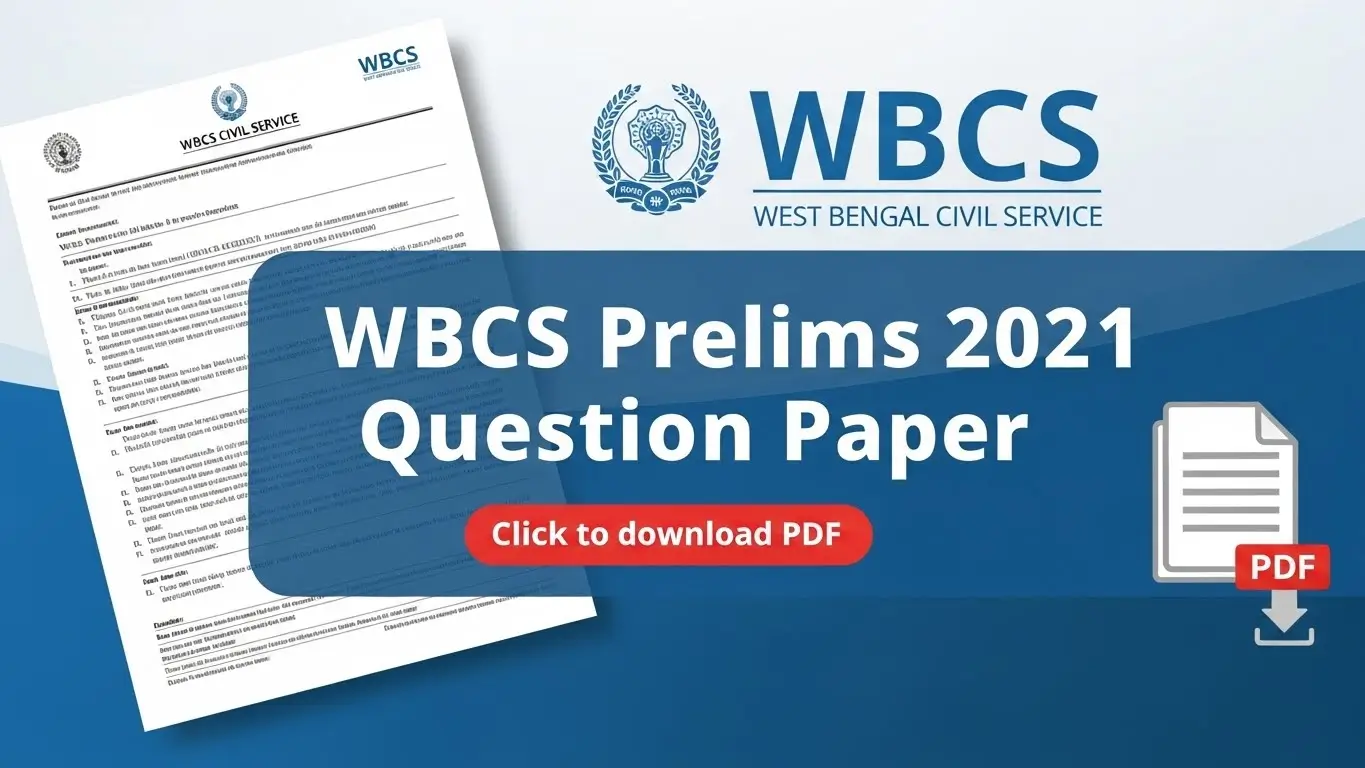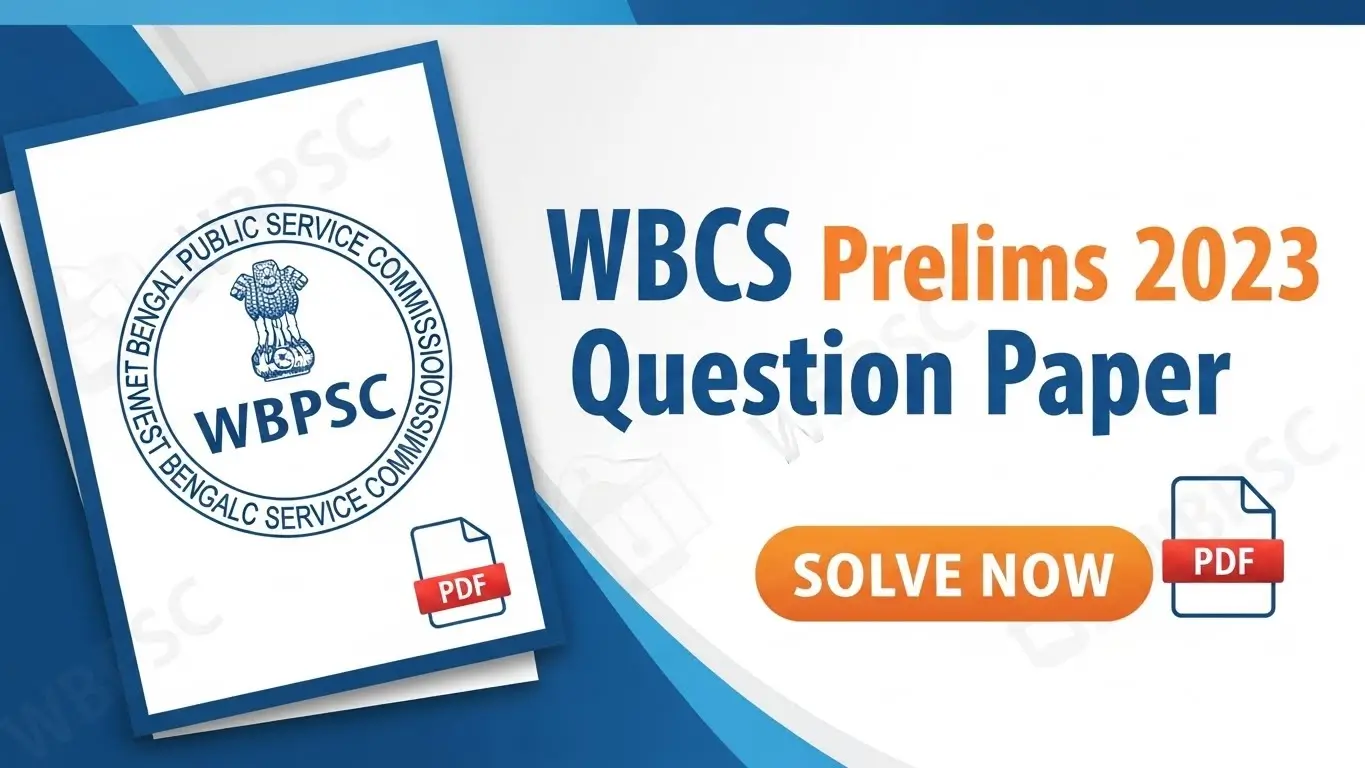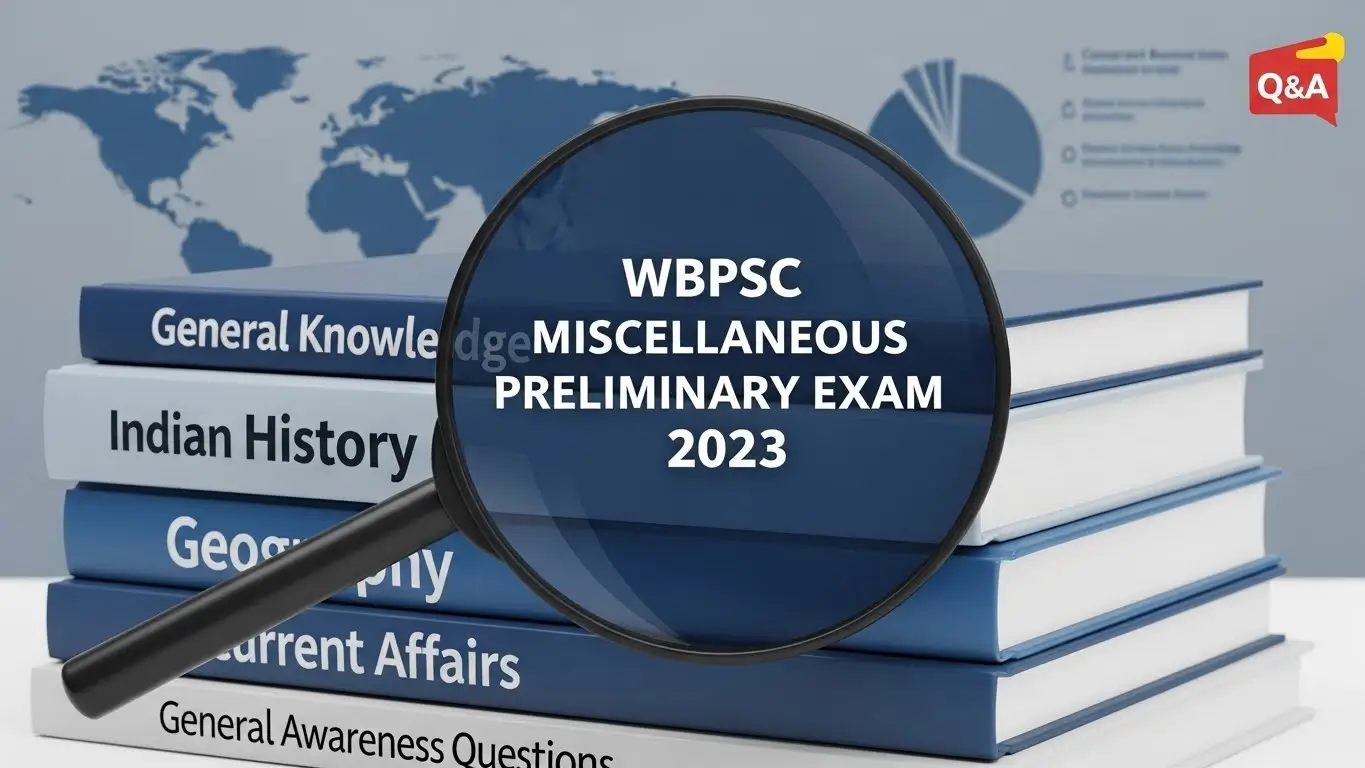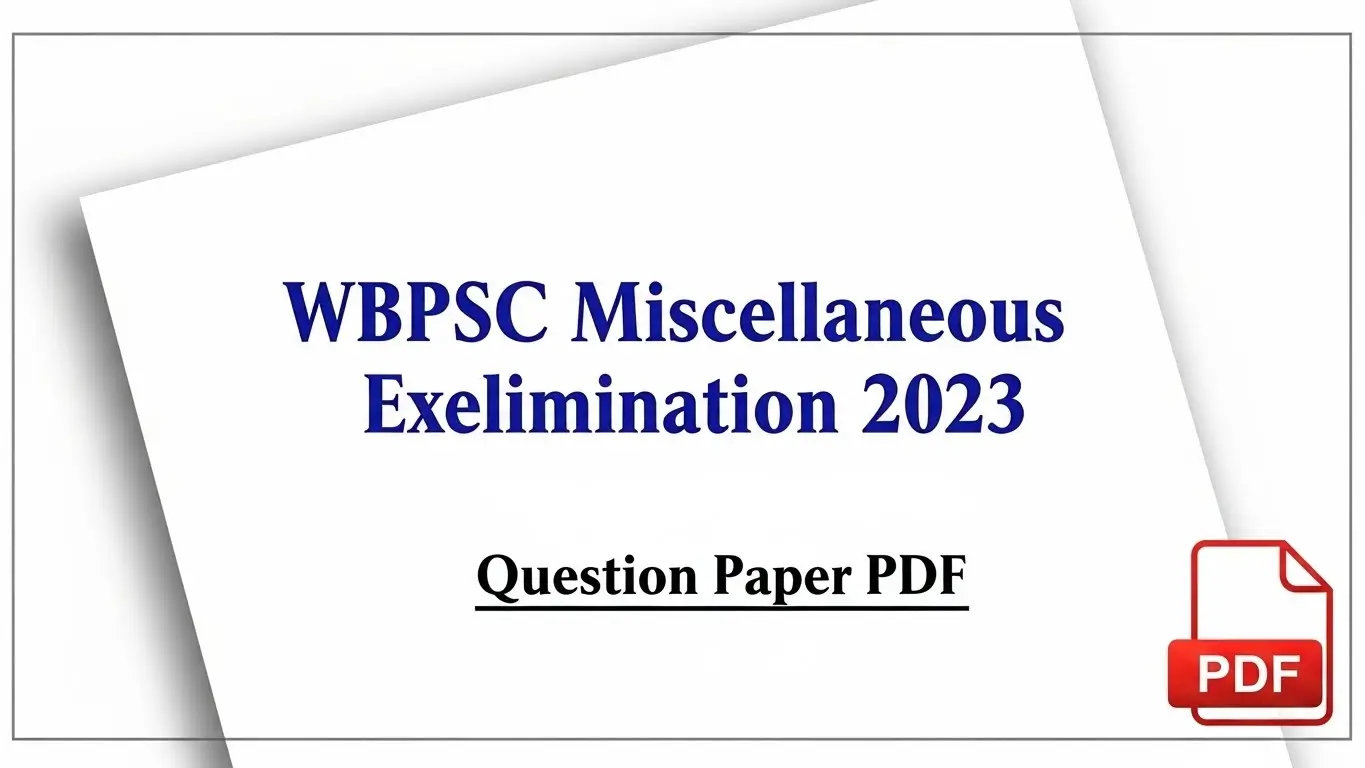Boost your exam preparation with our Daily General Knowledge Quiz. Solve fresh questions from history, geography, polity, science, current affairs, and static GK and other topics with detailed explanations. Perfect for SSC, Banking, UPSC, Railways, and other competitive exams.
Daily General Knowledge Quiz – Questions with Answers & Explanations:-
Explanation: Kerala is called the “Spice Garden of India” because of its extensive production of spices like cardamom, pepper, cloves, cinnamon, and nutmeg. The state has historically been a hub of spice trade, attracting traders from Arabia and Europe for centuries.
Explanation: C. Rajagopalachari became the last Governor-General of India in 1948 after Lord Mountbatten. He was the only Indian to hold this position before the post was abolished in 1950, when India became a republic and the President replaced the Governor-General.
Explanation: The Evergreen Revolution was a concept introduced by M.S. Swaminathan, aimed at achieving agricultural growth without harming the environment. Unlike the Green Revolution, which focused on high-yield varieties, the Evergreen Revolution emphasizes sustainability, biodiversity, and soil health for long-term productivity.
Explanation: Alexander Graham Bell is credited with inventing the telephone in 1876. His invention revolutionized communication, allowing voice transmission over long distances. Bell’s work laid the foundation for modern telecommunication, which continues to evolve with mobiles and internet-based calling.
Explanation: Indira Gandhi, daughter of Jawaharlal Nehru, became India’s first female Prime Minister in 1966. She served multiple terms until 1984, playing a crucial role in strengthening India’s political and military presence, particularly during the 1971 Bangladesh Liberation War.
Explanation: The Victoria Memorial in Kolkata, West Bengal, was built in memory of Queen Victoria and inaugurated in 1921. Constructed in white marble, it blends British and Mughal architectural styles. Today, it serves as a museum showcasing India’s colonial history and art.
Explanation: Bachendri Pal became the first Indian woman to scale Mount Everest on 23 May 1984. Her achievement was a milestone in Indian mountaineering and inspired many women adventurers. She later led multiple expeditions and contributed to training programs for young climbers.
Explanation: Fundamental Rights are enshrined in Part III of the Indian Constitution (Articles 12–35). They guarantee essential freedoms like equality, liberty, freedom of speech, cultural rights, and constitutional remedies. Inspired by the U.S. Bill of Rights, they form the cornerstone of Indian democracy.
Explanation: Fundamental Rights are enshrined in Part III of the Indian Constitution (Articles 12–35). They guarantee essential freedoms like equality, liberty, freedom of speech, cultural rights, and constitutional remedies. Inspired by the U.S. Bill of Rights, they form the cornerstone of Indian democracy.
Explanation: Nalanda University, one of the world’s oldest residential universities, was located in Bihar. Flourishing between the 5th and 12th centuries, it attracted scholars from Asia, including China and Tibet. It specialized in Buddhist studies, philosophy, astronomy, and medicine before being destroyed in the 12th century.
Consistent practice is the key to success in competitive exams. Our Daily GK Quiz helps you sharpen your knowledge and stay updated with important facts. Keep practicing every day, track your progress, and improve your accuracy. Stay tuned for tomorrow’s quiz and challenge yourself daily.
👉 Read Previous Daily General Knowledge Questions – 31 August 2025
📚 Join Telegram Channel to Get Daily GK Questions & Answers for Competitive Exams.

